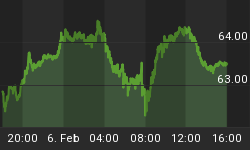Opposition leaders in Canada suggested a string of cyber security threats to domestic companies might be the work of Chinese hackers. Twice last week, the Canadian government confirmed two separate companies -- both in the energy sector -- were the target of cyber-attacks. In the United States, meanwhile, the Obama administration said national security interests trumped energy concerns and blocked a Chinese company from constructing wind turbines near a Navy installation in Oregon. While the Chinese military isn't the overt threat like the Soviet Union was, Beijing's rise as an economic power has seemingly sparked a war of economies.
The Canadian government last week confirmed that two energy companies were the target of a cyber-attack believed to have originated from China. Though Beijing denied it was responsible for the attacks, opposition leaders in Canada said there was cause for concern given the pending Chinese takeover of Canadian energy company Nexen.
"Cyber security is something we have to pay attention to and that ... includes how deals are set up and trade deals are set up and acquisitions are made," said legislator Paul Dewar, the foreign affairs spokesman for the opposition New Democratic Party.
Nexen in August backed a $15-billion takeover bid by China National Offshore Oil Corp. Canadian Prime Minister Stephen Harper has lobbied for Chinese investments in his country's vast oil and gas riches. Those ambitions could be derailed, however, given political divisions in Canada and Dewar's comments may further exacerbate tensions following a Chinese leader's statement that Beijing can't do business in Canada if deals like Nexen become politicized.
Meanwhile, the U.S. government last week blocked Ralls Corp from moving forward with plans to install wind turbines near or within restricted air space at a naval weapons training facility in the western state of Oregon. President George H.W. Bush was the last U.S. president to declare such action when, in 1990, he blocked a Chinese aerospace technology company from buying out a manufacturing company in the United States. Ralls has four wind farm projects in various stages of development and said it would take the matter before the courts. Despite U.S. President Barack Obama's "all-of-the-above" domestic energy policy, the administration said the move to build wind installations so close to a military site was a threat to national security interests.
Beijing on Monday celebrated the 63rd anniversary of the founding of the People's Republic of China. An opinion piece in China's official Xinhua News Agency last week said the country is "confidently grasping opportunities" given the pace of economic growth since 1949. As economies expand, they must do so beyond their borders as domestic markets become saturated. With the Cold War over, it's unlikely the geopolitical fears that dominated the international arena in the 1940s would redevelop in the early 21st century. But as low-grade conflict becomes the norm, so too may a different kind of global warfare.
U.S. Navy Rear Adm. Samuel Cox last week accusing Beijing of trying to crack into the Pentagon's computer network.
"Their level of effort against the Department of Defense is constant," he said.
Source: http://oilprice.com/Energy/Energy-General/Energy-New-Front-in-Economic-Warfare.html
By. Daniel J. Graeber of Oilprice.com















